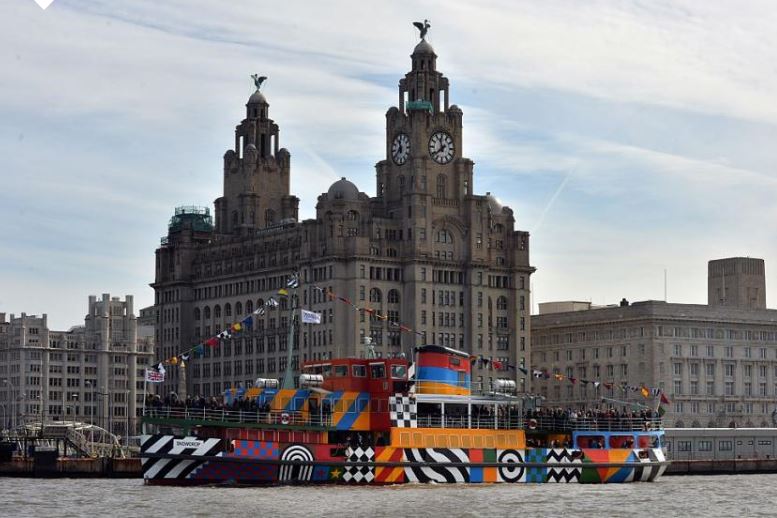[UK_CityMetric] Lessons from Seoul: why Liverpool needs an open data platform
Lessons from Seoul: why Liverpool needs an open data platform
See More This Article ►(http://www.citymetric.com/horizons/lessons-seoul-why-liverpool-needs-open-data-platform-2279)
The Liver Building and Mersey Ferry, to show that this article is largely about Liverpool. See what we did there? Image: Getty.
Just a few years ago the Baltic Triangle – Liverpool’s much-heralded innovation district – was a collection of abandoned lock-ups and derelict warehouses on the edge of the city’s docklands. It barely had streetlights. Now it is the epicentre of a burgeoning tech startup scene, with growth in new digital companies topping 119 per cent since 2010.
Leon Rossiter, founder and director of local creative services agency Instinctive Digital, last year laid down the gauntlet to the city’s tech community, saying that within eight years Liverpool should aim to create its own unicorn: a startup valued at over a billion dollars. Maybe this scale of ambition should not be so surprising. Liverpool might not be able to boast a Google or an Airbnb – at least not yet – but let’s not forget it is home of two of the biggest cultural properties in the world: The Beatles and Liverpool Football Club. Key to the city’s growing success as a host for startups and a destination for investment is Liverpool’s ability to sell itself to the world. Attracted by its cultural cachet and neoclassical grandeur, over 58 million visitors came to the city in 2014-15.
Liverpool Vision – the city region’s economic development agency – have capitalised on the city’s open and vibrant reputation, whilst emphasising its excellent graduate talent pool and the quality of life on offer to residents. Hosting events such as the Liverpool International Festival for Business, the agency has marketed the city as an inviting and supportive hub for creative entrepreneurs.
And this is far from PR fluff – one of Liverpool’s key strengths is the proliferation of digital and physical spaces dedicated to networking and collaboration. The Kin Network, for example, provides an online platform through which digital and creative practitioners in the city region can uniquely showcase their skill-set, connect, share resources, and post job opportunities. And the Baltic Creative – an affordable co-working, event and workshop space in the heart of the Baltic Triangle district – is run as a community interest company (CIC), reinvesting any profits back into the local tech and creative community and creating something of a virtuous growth cycle.
The entrepreneurial ecosystem in Liverpool is also given a boost by the Liverpool City Council’s procurement policy, which includes targets to increase SME bids by 10%. At the same time the city region’s Enterprise Strategy aims to involve 500 more startups in local government supply chains by 2020 and is promising extensive support to help SMEs bid on public sector tenders. The city is getting serious about being a good customer, as well as a good incubator, to new businesses.
As the details of a deal to devolve power to the Liverpool City Region Combined Authority are hammered out, an opportunity presents itself for a newly appointed mayor to engage the local community of tech innovators with the city more broadly. It could do this by following the example of Seoul, opening its data on a single, easily accessible platform.
In 2012 the South Korean capital’s innovation bureau orchestrated a cross-city cross-departmental open data strategy which has seen private and public services radically redesigned based on open data – from the analysis of the concentration of late night phone calls to see where taxi ranks should be located, to detailed analytics on geographic dispersion of older people to inform the delivery of key adult social care services.
By providing them with the raw materials, a newly-devolved city government could mobilise the tech entrepreneurs at the centre of the Baltic Triangle boom to formulate radical new solutions to the issues facing the city region. If they manage to do this, then maybe that first Liverpool unicorn will serve not only the venture capitalists but also the general public.
